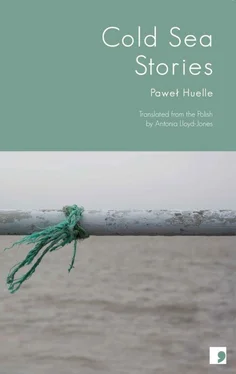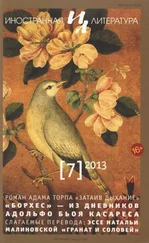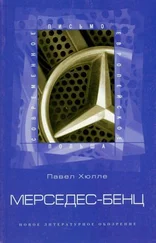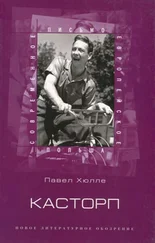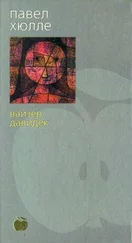‘First let’s wait a bit,’ he said, turning up the television, ‘then I’ll go and reconnoitre.’
After an hour, during which they sat huddled together shyly like a pair of school children, he went down to the hotel bar, slowly passing the reception. There were two men sitting in armchairs in the lobby, clearly on duty. He drank a small whisky and went back to the lift. There was no one in the corridor on the third floor, and there were no sounds coming from behind the door of her room.
‘Put on my coat, trousers, shoes, scarf and also… my glasses. It’s a pity I haven’t got a hat. But you can smoke my pipe. Yes, like that. Keep your hands in the pockets. Here’s a rain hat, I brought it just in case. Wait, a man’s shirt under the coat, with the collar done up, and a tie – you must have a tie, so it shows under the scarf. Just walk through at a calm pace and get in a taxi, as if you were off for a late supper. But wash off your make-up. We’ll pin your hair up under the cap – like that, look. You can hang my bag over your shoulder. I’ll put your handbag in my suitcase.’
‘All right, but then what?’
‘You’ll take a taxi to the station. The night train from Geneva to Rome departs from platform three at half-past midnight. Let’s meet at the platform entrance. Stand facing the timetable board and don’t look round. I’ll be there ten minutes after you.’
‘We haven’t got much time.’
‘If you’re not on the platform, I’ll go back to the hotel.’
‘If they detain me, they’ll ask who helped me.’
‘So tell them.’
‘I won’t.’
‘You will, but only after noon. I’ll be far away.’
‘And will we ever meet again?’
‘You’ll send me a letter from prison.’
‘To what address? I don’t even know your surname!’
‘Here’s my card.’
‘No, because if they catch me…’
‘They won’t catch you. Take it. But let’s hurry.’
When she went out into the corridor with the bag slung over her shoulder, in his raincoat with the collar slightly turned up and with his cap on her head, adjusting the glasses and puffing on the pipe, he thought the shoes might give her away more than anything: they were too big, and despite her efforts, every second or third step she distinctly shuffled them in a funny way. But there was no time for practice. He packed at lightning speed, highly amused by the situation. In just his suit, and with his small case, he appeared at the reception desk to hand in his key.
‘Are you leaving?’ asked the young man.
‘My bill is paid,’ he said in a confident tone. The two gentlemen in the armchairs cast him furtive glances, but neither of them so much as raised a finger.
‘Yes, of course,’ confirmed the receptionist. ‘Bon voyage.’
He gave him a nod, and just outside the hotel he got in a taxi. He glanced at his watch: the night express was leaving in fifteen minutes. He still had enough time to stop at the ticket office and buy two first-class tickets for the sleeping car. Teresa was standing in front of the platform timetable; one of her rolled-up trouser legs had come undone, hiding her shoe. The train was just pulling in. They were walking alongside each other, when suddenly one of the wheels on his case began to squeak.
‘I don’t have a large flat in Rome,’ she said, once they were in the compartment. ‘I don’t know if you’ll like it.’
‘But I don’t want to go to Rome at all, and I’m not planning to stay at your flat.’
‘So what are your plans?’
‘To stop in Venice.’
‘For how long?’
‘A week or two.’
She went behind the screen to wet her face and neck in the sink.
‘But can you stay a day with me?’
‘Yes, of course.’
‘You’ll meet my daughter. She isn’t mad like me. Luckily I did manage to pay for the hotel,’ – she changed the subject – ‘but for this luxury here I will be in your debt. Until next month, if that’s all right. Why don’t you say something? Perhaps you just want to sleep with me? Are you expecting something?’
‘I’d like to have a cup of tea.’
‘Hand me my blouse. Tea at this time of day? That’s a Russian habit. I’m sorry, perhaps I’ve offended you. So did you take care of your business in Zurich?’
‘Yes. I won’t be going back there again.’
They sat facing each other and drank the tea served by the steward. Outside the lights of passing stations flashed by. Finally they lay down, each in their own bed.
‘Do you know of a boarding house in Venice?’ she asked in the darkness.
‘No. I’m staying at the Hotel Danieli.’
‘Do you know how much that costs? A fortune!’
‘Tough. Unless you come with me and help me find something cheaper.’
‘I’d have to bring my daughter.’
‘So bring her.’
‘Are you serious? Or are you just…’
‘I’m serious.’
Once again they were silent, until finally he said: ‘I’d like to kiss you. When I first saw you in the train to Zurich I dreamed of kissing you.’
‘And I asked if we were already in Zurich, as if I didn’t know where we were. I wanted you to embrace me. I want you to now, too.’
He climbed the ladder and kissed Teresa on the cheek, then on the lips. She held his head in her arm so that he had to lie down beside her. Both of them were shy, gentle, longing for love. Teresa fell asleep first, with her cheek against his neck. He stroked her hair softly, and as the night finally engulfed him, he realised he was starting a journey without end or beginning, beyond the curse of time.
I
FOR MORE THAN twenty years Joachim had always come back from work the same way. He had less than a five-minute walk from the notary’s office to the metro station on Admiralty Square. There he got on the green line, and five stops later he was almost home. He passed the hulking edifice of the Geological Museum, which he had never visited, and turned into a small, quiet street, where there were some four-storey apartment houses behind a row of old plane trees. His was number eight. Long ago, when he and Julia had moved here, each building had had its own porter. And each porter wore a sort of livery. As the years had gone by, the last remnant of their rather theatrical uniforms were the caps, quite like the ones still worn by provincial postmen to this day. And then, in the era of universal automation, the porters had been replaced by entry phones.
Sometimes the return journey took him about half an hour longer. Before going down into the metro Joachim would drop in at the Cosmopolitan bar to have an espresso with his glass of rum as he browsed through the newspapers – from the right-wing El Nacion to the left-wing El Mundo . His reading never absorbed him so fully that he couldn’t hear the conversations going on around him. The people holding them were brokers from the nearby stock exchange, and property dealers; naval officers were also to be found here. Sentences such as: ‘Look how badly Pepo has come unstuck, just when it was all going so fabulously well for him’, or, ‘But as I say, she’s a whore. I know what I’m saying, and that’s why I’m telling you,’ were like doors opening into other people’s apartments; not as though they were expecting any guests, but rather as though the listener happened to be walking up the stairs and chanced upon an accidental and briefly open chink into somebody else’s existence. Joachim did not find it unpleasant; on the contrary, sometimes he thought up a development to the stories he overheard.
That Pepo, for instance: having staged his own death, he had been leading a new life in Patagonia, while his wife and three children were regularly putting flowers on his empty grave. Pepo’s happiness in the arms of his young secretary had brought along an infinitely prosaic disaster: reduced to despair by the betrayal and departure of his beloved with a fly-by-night surveyor, he had gone back to his wife, only to find her in the arms of an advertising salesman. Two fatal shots, and then a third, suicidal one, had decisively won the fortunate Pepo first place on the evening news and in the tabloids.
Читать дальше
